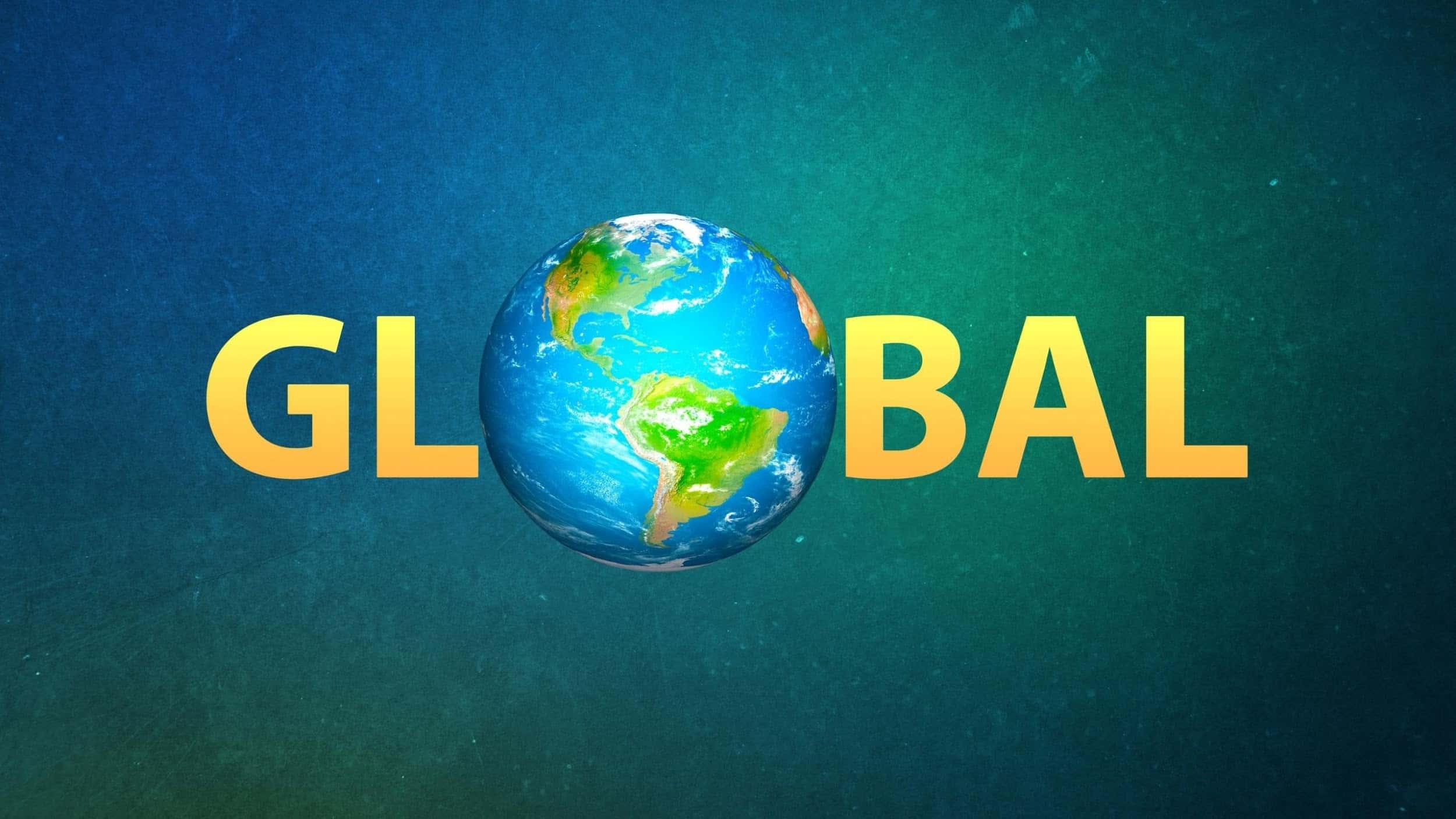Table of Contents
- What Are Some Of The Most Significant Factors That Make A Country Good For Business Investment And Growth?
- HOW THE TOP FIVE ECONOMIC INDICATORS AFFECT THE SUCCESS OF A BUSINESS
- WHY GOING GLOBAL IS A GREAT IDEA
- WHAT ARE THE 10 BEST COUNTRIES TO START A BUSINESS IN 2020?
- WHAT ARE THE WORST COUNTRIES IN THE WHOLE WORLD TO START A BUSINESS IN?
- TIPS FOR STARTING A BUSINESS IN OTHER COUNTRIES IN 2025

Most people spend their entire life in the country in which they were born. It’s easy to see why most businesses base their operations in their home countries. But there are many reasons to look around the world to see if your company is better situated somewhere else.
What Are Some Of The Most Significant Factors That Make A Country Good For Business Investment And Growth?
It could be all about the Gross Domestic Product ( GDP), the Consumer Price Indices (CPI), or is it just about the kind of foreign investment policy that the government is implementing?
It’s not going to surprise you to know that it’s all about the above and so much more.
The intricacy of making a country lucratively viable for business investment and another clearly poor one for that kind of investment is profoundly rooted in the fundamentals of economics.
As a business owner, or at least someone interested in running a foreign company or investing, knowing some, if not all, of these intricacies, can place you in a stronger position to make the right investment decision. It will at least give you a good idea of the best and worst countries for companies.
HOW THE TOP FIVE ECONOMIC INDICATORS AFFECT THE SUCCESS OF A BUSINESS
Learning to predict the kind of effect each of these metrics has on the effectiveness of a country’s economy could save you a lot of money.
Say, for example, if you have invested heavily in France and are keeping track of the CPI, you may find that inflation is rising in that country. An educated investor will know that this might mean an inevitable rise in interest rates by the banks.
Knowing this kind of hike tends to harm your equities, for the time being, you might decide to protect yourself by reducing all of your holdings in that region.
Going internationally will diversify the markets and build new customer bases.
As someone who is seeking to make investments in businesses in other countries, let’s take a look at some important economic factors that should lead you in this venture:
Gross Domestic Product: reflecting the market value of all final services and products generated in any country over a given period of time, the GDP of a country is relevant because it tells you how the economy is doing as well as its size. If a country has an increasing GDP, and inflation is not a particular problem, then that country’s businesses are generally better off.
Consumer Price Index: by measuring the changes in the prices of standard consumer services and products purchased by households in a region, CPI is also used as an inflation indicator. Inflation can negatively or positively affect the currency of a nation, which, in turn, would decide how costly it is for you to invest in that nation.
PMI Production and Services: this is essentially a measure of how safe the country’s manufacturing sector is over a particular period of time. Knowing a country’s PMI will tell you how well or poorly companies are doing, and why.
Jobs Indicators: this is probably the most significant measure to be tracked. How efficient and affluent a nation’s people are directly determined by how much money they have to spend on goods and services. If the unemployment rate increases, these people will have less disposable income and, as such, consumer spending will decline, which, in turn, will affect both GDP and the country’s overall economic growth prospects; this is bad for business.
Minutes of the Central Bank: the central bank of the country shall specifically assess the financial policies that will control its economy for the financial year. Listening to what is being said by central bankers, or reading the official minutes of the central bank, will give you information about potential policy decisions that will directly impact businesses.
While these are five of the most important indicators that indicate the course of a country’s economy and whether or not it is good for business, they should NOT be used as the sole source of knowledge.
They can only serve as a starting point for more research into particular fields and market niches.
WHY GOING GLOBAL IS A GREAT IDEA
The argument about starting a company in foreign countries at this time and age is that it doesn’t have to be as complicated as it has been in past years.
Yeah, international laws, taxes and policies still exist, but thanks to technology and the free flow of information on the Internet, these standards are now easier to find and understand.
Just because you own a small business in the United States or the United Kingdom doesn’t mean you have to think locally. You can quickly grow the business and make it a global brand. While there are obstacles, potential rewards far outweigh any hindrances you may experience.
Here are some great reasons why you should consider going global:
You will diversify the markets and build new customer bases.
Going internationally will easily expand the market life of your current goods. Whatever product you have already created in your home country might very well be the next hot thing in a foreign country.
You significantly reduce your reliance on your local market and spread your risk globally.
It will teach you new ways of doing business as well as showing you how to compete in more competitive markets places, and also enable you to develop as a brand and organisation.
It will allow better seasonal variations. EG if you have a product that sells very well in the winter and is in the summer in your country, you might easily sell it in other countries that are going to experience the winter during the same time.
Before you consider starting up a business in another country, you need to do your homework. Find out what kind of cultural differences could make your brand and products affected by that market. Find out what kind of business policies the government has against your particular brand and see if there is a viable opportunity for your company.
That’s why we’ve assembled this list for you today; to show you which countries are the best in the world to start a company and which do not hold too much promise at the moment.
You’ll learn new methods of doing business that teach you how to compete in more dynamic markets and allow you to expand internationally as a brand.
WHAT ARE THE 10 BEST COUNTRIES TO START A BUSINESS IN 2020?
Now that you know what you’re looking for in a country you need to decide whether or not it’s perfect for doing business, let’s look at some of the most lucrative countries you should be concentrating on:
The UK
Had a GDP of $2.6 Trillion as of December 2017
A Quick Glance
GDP Growth: 1.8%
Per-Capita GDP: $39,000
Public Debt/GDP: 89%
Population: 66M
Unemployment: 4.9%
Trade Balance/GDP: -4.4%
Inflation: 0.7%
This country has topped Forbes’ 2018 list of the best countries in which to do business. And for a good reason!
They say that numbers don’t lie, and as things stand, the United Kingdom is still one of the best countries to start a business in, despite all that Brexit uncertainty.
But, apart from the beautiful economic indicators, other factors have come into play; factors that are bringing the United Kingdom to the top. This includes the following:
Ease of business incorporation: In the UK, this can be completed within an hour and will cost you £14 or around $20.
Tax benefits: The British Government provides numerous tax-related incentives to entrepreneurs, investors, and even workers that make the country financially attractive.
In addition, the UK has one of the lowest corporate tax rates among the G20 countries and, as such, is very appealing to business investors.
SINGAPORE
GDP: $313 Billion as of December 2017
A Quick Glance
GDP Growth: 2%
Per-Capita GDP: $56,000
Public Debt/GDP: 113%
Population: 5.6M
Unemployment: 2.1%
Trade Balance/GDP: 19%
Inflation: -0.5%
Singapore, according to the World Bank, is one of the healthiest environments for starting a company. Apart from the excellent economic measures set out above, the country also has the following:
It’s politically secure.
It is one of the richest in the world, meaning that the population has a lot of disposable income.
It has a good workforce.
It does not levy any tax on dividends or capital gains.
There are several free trade deals that open up large markets.
You can register and start your business online easily.
Singapore also provides cheap airfares to its neighbouring countries. This means that you, as a company owner, will have inexpensive access to other markets, including Thailand, the Philippines, Malaysia and Indonesia.
NORWAY
Had a GDP of $399 Billion in December 2017
A Quick Glance
GDP Growth: 1.1%
Per-Capita GDP: $75,000
Public Debt/GDP: 36%
Population: 5.3M
Unemployment: 4.7%
Trade Balance/GDP: 5%
Inflation: 3.6%
A great thing about Norway is that it is easy to connect with the government online securely. You can register a business with ease, and you will also find that compliance with tax laws in that country is a fairly straightforward operation.
Another added advantage to starting a Norwegian business is that they are a highly technologically advanced nation with a majority of Norwegians very eager to adapt as well as pay for new technology.
This means that you can easily find highly skilled labour, particularly in the fields of technology, design, finance and music technology.
Other aspects that make this nation one of the best to do business include:
- The population is generally affluent, meaning they have a lot of disposable income.
- It is quite stable politically
- It has well-developed communications and transport links.
- It has a great infrastructure compared with other nations.
- It’s a major player in the EU and has long-standing trading relations with other EU countries.
- Norway is a very open country with low levels of corruption.
For these reasons, Norway offers a very attractive choice for any simple business investor looking to develop an honest business.
NEW ZEALAND
GDP: $211 Billion as of December 2017
A Quick Glance
GDP Growth: 3.6%
Per-Capita GDP: $44,000
Public Debt/GDP: 33%
Population: 4.8M
Unemployment: 5.1%
Trade Balance/GDP: -2.8%
Inflation: 0.6%
In addition to the economic measures set out above, many other advantages render this nation an attractive business destination:
- It has a very skilled workforce that is not too costly.
- No payroll, social security taxes or capital gains taxes are involved.
- The incorporation of a company takes a day while the registration of a property may take as little as two days.
- It also has a wealth of knowledge readily available online through Statistics New Zealand that can help you perform comprehensive research into any sector you choose to invest in. This also gives you an additional benefit when you learn about the culture, the buying patterns of the people and how well companies are doing in your niche.
HONG KONG
GDP: $339 Billion as of December 2017
A Quick Glance
GDP Growth: 2%
Per-Capita GDP: $46,000
Population: 7.4M
Trade Balance/GDP: 4.6%
Unemployment: 2.7%
Inflation: 2.6%
Hong Kong’s economy has been rising steadily over the last few decades, suggesting that the country is adopting realistic and economically sustainable business policies. Hong Kong, as a free-market economy, is highly dependent on international finance and trade.
It has a highly trained workforce and a well-designed and well-constructed transport and communication system.
MEXICO
Had a GDP of $1.1 Trillion as of December 2017
A Quick Glance
GDP Growth: 2.3%
Per-Capita GDP: $8,500
Public Debt/GDP: 50%
Population: 129M
Unemployment: 3.9%
Trade Balance/GDP: -2.2%
Inflation: 2.8%
With the high rate of crime in many parts of Mexico, not many investors will automatically leap into the idea of starting a company there. However, despite these difficulties, Mexico still is one of the best possible destinations to start a business.
This is mainly due to the comprehensive business registration reforms that have taken place in the country. These changes have also contributed to an increase in the overall registration of companies.
It’s much easier to register and start a company in Mexico now. It only takes around eight days to get your business up and running legally so you can get to work in this country quite easily.
Team that with the fact that it has a ready and eager workforce that is considered inexpensive relative to other countries on this list, and you have Mexico as a great overall destination.
It also has free trade deals with 46 various countries, thus opening vast potential markets for investors willing to engage in a broad manufacturing-oriented economy.
SWITZERLAND
GDP: $679 Billion as of December 2017
A Quick Glance
GDP Growth: 1.4%
Per-Capita GDP: $80,000
Public Debt/GDP: 33%
Population: 8.5M
Unemployment: 3.3%
Trade Balance/GDP: 10.5%
Inflation: -0.4%
It has an unemployment rate of just 3.3 per cent, a booming economy and a relatively stable political atmosphere, Switzerland is undeniably one of the best countries in the world for anything but tropical weather.
It has a highly skilled workforce that is ready and eager to work (though it may not be as inexpensive as it is in other countries on this list).
The country benefits from a highly established service sector plus a manufacturing industry that specialises in high-tech and knowledge-based production. It also has one of the most advanced financial sectors in the world, making it ideal for secure, measured and steady investment.
Apart from the excellent figures that suggest economic growth and excellence, Switzerland also has other factors that make it an enticing starting point for the industry. This includes the following:
- A very open legal framework which is easy to follow
- Consistent economic and political stability
- Low taxes on businesses
- Efficient market capital
- Exceptional transport and communication networks
- Plus, it is a trusted and respected member of the EU that opens up some of the most mature and gigantic markets for investors in Europe.
CANADA
Had a GDP of $1.6 Trillion as of December 2017
A Quick Glance
GDP Growth: 1.5%
Per-Capita GDP: $43,000
Public Debt/GDP: 99%
Population: 37M
Unemployment: 7%
Trade Balance/GDP: -3.3%
Inflation: 1.4%
While the Great White North has a high cost of living, the nation has made remarkable progress in the manufacturing, service and mining sectors. These gains have significantly helped to turn the nation from a predominantly agricultural economy into one that is mainly urban and commercial.
It also has a large oil and gas industry ranked third in the world in oil reserves behind Venezuela and Saudi Arabia.
Canada enjoys an incredibly balanced bilateral trade with the US that opens up a massive opportunity for business investors seeking to tap into the US through Canada.
The nation has a very stable political climate, outstanding health care and a highly skilled workforce. All of these things make it a lucrative destination for foreign investments which are seeking to take advantage of the demand in services or development.
IRELAND
GDP: $330 Billion as of December 2017
A Quick Glance
GDP Growth: 5.1%
Per-Capita GDP: $69,000
Public Debt/GDP: 73%
Population: 4.8M
Unemployment: 7.9%
Trade Balance/GDP: 3.3%
Inflation: -0.2%
This tiny, trade-dependent nation has a robust economy that has gone through the wringer in recent years but has come out stronger.
Following the official exit of the EU-IMF bailout scheme, which saw Ireland stabilise its economy after the 2007 economic crisis, the country experienced rapid economic growth. As such, the government has boosted public spending and significantly decreased certain taxes, which is good news for business owners.
After the collapse of the construction industry (due to the same economic crisis), Ireland has become increasingly reliant on exports for economic development. For any business owner who wants to set up a manufacturing company to export goods, this makes it one of the best destinations.
Despite its relatively small scale, the nation has a large workforce; it is experiencing an unparalleled phase of economic growth (with GDP reaching 26% in 2015) and is politically quite stable.
GERMANY
Had a GDP in $3.6 Trillion as of December 2017
A Quick Glance
GDP Growth: 1.9%
Per-Capita GDP: $43,000
Public Debt/GDP: 68%
Population: 83M
Unemployment: 4.2%
Trade Balance/GDP: 8.3%
Inflation: 0.4%
As one of the biggest economies in the world and the largest in Europe, Germany is a great investment location and a leading exporter of cars, equipment, household appliances and chemicals.
Perhaps the biggest selling point for this country is that it has a large, highly qualified and highly trained workforce. While this workforce is not as cheap as it is in many countries on this list, there are many promising offers from Germany.
Yet, amid all this, the economy suffers from a low level of investment that makes it a ready and mature market for foreign investors eager to take on the salaries of the available labour force.
As a full member of the EU, Germany enjoys stringent production and quality requirements. Starting a company, there will not only give you a chance to tap into the relatively well-funded markets in the EU but will also give you an opportunity to increase your production standards. Standardised across the board, this will give the brand a highly competitive advantage on the global market.
Going internationally will significantly reduce your reliance on your local market and spread your risk worldwide.
WHAT ARE THE WORST COUNTRIES IN THE WHOLE WORLD TO START A BUSINESS IN?
Just as there are countries around the world that are very conducive to business investment, there are countries that clearly do not promote this kind of thing. Many of these countries are entangled in the following:
- Corruption is often uncontrolled
- Constitutional Instableness
- Restrictive, if not exploitative, international investment strategy
- Woeful intelligence and protection issues
To top all of that off, many of them are mainly unskilled labour, despite the fact that they are inexpensive. Here are some of the worst countries in the world to start a company in.
HAITI
Had a GDP of $8.5 Billion as of December 2017
At a Glance
GDP Growth: 1.4%
Per-Capita GDP: $770
Public Debt/GDP: 34%
Population: 11M
Unemployment: 40.6%
Trade Balance/GDP: -0.9%
Inflation: 13.4%
There was once a time when Haiti stood for warm ocean waters and beaches. But after the earthquake of 7.0 magnitude in 2010, Haiti has been a state of emergency. This is not to suggest that the economy had been too strong before, but the earthquake made it even worse.
Even though this is a free enterprise zone, there are certain aspects of its governance and population that make it very difficult for investors to do business here. This includes the following:
- A high degree of Official Corruption
- Political turmoil and uncertainty
- A significant level of poverty
- Poor standard of education
- Vulnerability to natural disasters like earthquakes and tsunami
Today, Haiti is the poorest nation in the western hemisphere. Around 60 per cent of the population lives below the poverty line, which means that they do not have the discretionary income to purchase your goods.
Although the country enjoys duty-free exports to the United States for almost all its products, the lack of skilled labour and the susceptibility to natural disasters make it a terrible place to develop a company. In addition, due to the 2010 earthquake, almost no transport and communication system has been built.
LIBYA
Had a GDP of $50 Billion as of December 2017 (although GDP has been fluctuating wildly for the last decade)
A Quick Glance
GDP Growth: -3%
Per-Capita GDP: $7,800
Public Debt/GDP: 7%
Population: 6.4M
Unemployment: 30%
Trade Balance/GDP: -22.4%
Inflation: 27.1%
Libya once had been a powerhouse in Africa. However, Libya has been reduced to nothing more than ruins after the Arab Spring that burned through most Islamic nations throughout Africa and the Middle East back in 2014.
The country is almost entirely dependent on oil and gas exports, but since 2015, competing powers seeking to dominate the country’s largest oil terminals have led to an armed conflict that, in turn, has severely hindered the country’s output of crude oil.
It is because of the very violent conflict between opposing forces that makes this country uninhabitable for the industry. The major lack of infrastructure, the lack of food and nutrition for the people and the lack of a skilled workforce all make Libya unfavourable to business investment at the moment.
Going global offers a lot of wonderful opportunities, but you need to do your homework. Note, no two firms are exactly the same — just as no two countries are.
TIPS FOR STARTING A BUSINESS IN OTHER COUNTRIES IN 2025
While technological advancements have made it far simpler to figure out what it will take to start a business in a foreign nation, the actual undertaking is still a formidable job. Imagine how hard it is to launch, run and develop a profitable company in your own country if you multiply that a few times to get a better picture of how difficult it will be to start a foreign country.
For instance, you will have to comply with a lengthy list of local and international laws, as well as coping with foreign exchange rates and language barriers. They’re all instrumental, and they might very well destroy the chances. Here are some tips you can consider before starting a company in another country:
You need to get acquainted with the rules, legislation, banking patterns, and tax laws that control every country you choose to invest in as a business owner. You need local lawyers on the ground; people who can give you a clear picture of what it takes to incorporate your company, to buy the right assets, to pay the labour force, and to make a real profit.
Have a good overview of the political climate of the country
One of the most common problems with countries that have been rated as the worst in business because of the fact that they all have a turbulent political environment. The exact opposite is true for countries that have been called the best to start a company in; they all have very stable political climates. The political climate of a country essentially defines the form of economic growth that it will experience, as well as the financial policies that will rule it for a fiscal year. It also indirectly defines the degree of corruption as well as the bureaucracy involved in starting a company.












